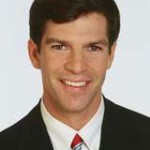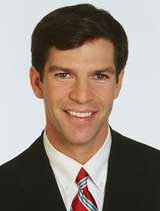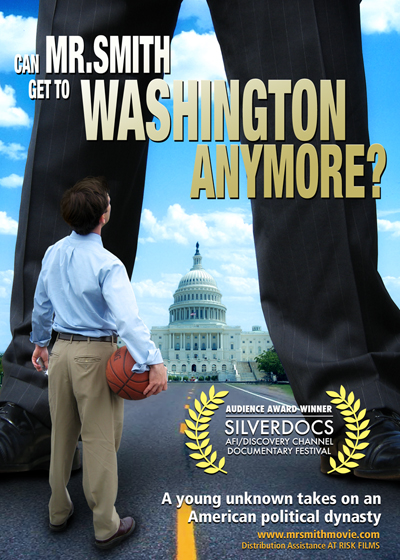By RP Staff, on Wed Jan 2, 2013 at 10:00 AM ET From the St. Louis Beacon:
 More than three years after a federal campaign-finance probe destroyed then-state Sen. Jeff Smith’s political career, he has worked to create a new life for himself that still includes politics. More than three years after a federal campaign-finance probe destroyed then-state Sen. Jeff Smith’s political career, he has worked to create a new life for himself that still includes politics.
And it appears that he may have succeeded.
In fact, Smith’s role in Missouri governmental affairs appears to have grown, even though he continues to reside in suburban New York City.
Smith confirms that, as of a few months ago, he became executive director of the Missouri Workforce Housing Association, which is made up of 135 groups – up from 35 members just 18 months ago. The association’s chief mission is advocating for affordable housing.
Smith said the member groups include “community organizations, public agencies, contractors, private and nonprofit developers, construction material suppliers, and other professionals.”
“I’d consulted for them for over a year and we agreed that, given the organization’s growth and increased capacity, it made sense to formalize the arrangement,” Smith said in an interview.
“My role has been to a) grow the membership; b) work with our diverse membership to shape our policy objectives; c) manage our grassroots advocacy efforts; and d) oversee our day-to-day efforts within the Capitol, which are handled by Jorgen Schlemeier of Gamble & Schlemeier.”
Although he travels to Missouri about once a month, Smith expects to remain in New York for the foreseeable future. Now 39, he is married and has a 15-month-old son, along with two dogs.
“Life is great,” Smith said. “We just bought a home in the ‘burbs — sort of. We’re in the Montclair, N.J., area, which is like University City….Lots of restaurants, culture, diversity, vibrancy. Home to a lot of academics, writers, and other creative types, most of whom commute to the city.”
Smith is among them. He has a full-time position as a professor in the urban policy graduate program at the New School. “The students are bright and passionately committed to making a difference in the world; I love teaching them,” he said. “And my colleagues are both impressively credentialed as scholars and keenly interested in real-world issues — a relatively rare combination in academia. It’s a special place.”
Click here for the full piece.
By Jeff Smith, on Fri Dec 21, 2012 at 10:00 AM ET Q: How do I prevent this total douche bag I hate, who I worked with on a campaign, from getting a sweet political appointment?
—I.H., Washington, D.C.
First, I will try to answer your question. Years ago there was a guy in Missouri who was the leading candidate to run the state Democratic Party. He was an unadulterated piece of sh–. Consequently, along with a few others who had worked with him, I decided to sh–can him. But then I realized that the powerful Carnahan family, who disliked me after my campaign against family scion Russ, would influence the selection. So I “let slip” to a close ally of the Carnahans that I strongly supported the candidate, because I suspected he’d go back and tell the Carnahans that the candidate was a “Jeff Smith guy.” A week later we found out that the guy’s candidacy had been scuttled.
And second, I will quote Nelson Mandela, who said, “Resentment is like drinking poison and then hoping that it kills your enemies.” In other words, let it go. If he’s really that big of a douche bag, people will soon catch on. Since it’s Washington, I guess that means he’ll soon be someone’s chief of staff.
 Q: I’ve worked in politics for about five years. And I’m doing fine—progressively more responsibility in each position, yada yada—but given that I have a law degree, I haven’t really gotten where I want to be. I want to work on a ’16 presidential campaign in a senior position. What would you suggest I do in the next two years to help make that happen? Q: I’ve worked in politics for about five years. And I’m doing fine—progressively more responsibility in each position, yada yada—but given that I have a law degree, I haven’t really gotten where I want to be. I want to work on a ’16 presidential campaign in a senior position. What would you suggest I do in the next two years to help make that happen?
—C.J., Washington, D.C.
Two-part answer here. The first is simple: Raise money, and raise it big and early. Few do it, and if you’re young and do it well, you can write your ticket. It’s the best way to stand out and distinguish yourself early in the party and to the campaign. If your candidate loses in the primary, you’re sought after by the nominee, which can’t be said of most campaign staff. They’re usually left out in the cold.
The second is a different approach: Learn how to do something important that only a few people in politics understand. Two possible areas come to mind where candidates are going to want people with cutting-edge expertise. The first is hardcore quantitative analysis similar to that which powered the Obama re-election campaign. The second is knowledge about state delegate laws, which helped Obama make a series of savvy (and rather counterintuitive) targeting decisions in 2008, allocating resources to small states, some of which held caucuses which advantaged Obama’s zealous supporters. Since the media is currently focused on the former area, I’d probably choose the latter, and get to work memorizing the complex patchwork of state delegate selection laws.
Read the rest of…
Jeff Smith: Do As I Say — A Political Advice Column
By Jeff Smith, on Wed Dec 12, 2012 at 9:15 AM ET No American family embodies mainstream Republicanism more than the Bushes, noted a New York Times article this year.
For three generations, Bush men have occupied towering positions in the party pantheon, and the party’s demographic and ideological shifts can be traced through the branches of the Bush family tree: from Prescott, the blue-blooded Eisenhower Republican, and George H.W. Bush, the transitional figure who tried and failed to emulate the approach of the New Right, to George W. Bush, who embodied the new breed of tax-cutting, evangelical conservatism. Indeed, the Bushes’ metamorphosis from genial centrism to deep-fried conservatism has both anticipated and reflected the party’s trajectory.
But now, Jeb Bush, a potential 2016 presidential candidate, seems to be bucking the trend. He is seeking to return the party to its ideological moorings — toward the centrism of his grandfather. Even before the GOP’s ignominious defeat in November, Jeb was offering tough love to his party, suggesting that Republicans stand up to Grover Norquist and craft a bipartisan compromise to reduce the deficit significantly. But will Republicans listen? There are many reasons to believe they won’t.
Prescott was a Manhattan investment banker who called himself a “moderate progressive.” In the 1952 primary between conservative presidential candidate Sen. Robert Taft and moderate Gen. Dwight D. Eisenhower, Prescott chose Eisenhower — and became the president’s favorite golf partner. Prescott rode Eisenhower’s coattails into the Senate, where he focused on urban renewal, spearheading the 1954 Housing Act. An early proponent of the line-item veto, he received national recognition as an advocate of fiscal responsibility.
 Prescott’s son George H.W. left for West Texas in 1948 when Texas was still a one-party state. But change was afoot in the South, and by the time H.W. ran for U.S. Senate in 1964, he encountered a flourishing Texas Republican Party that had recently elected its first U.S. senator by attracting hordes of conservative Democrats. But the new rank-and-file Republicans were nothing like the Connecticut Republicans he knew — or even like those in the Houston suburbs. Biographer Richard Ben Cramer imagined H.W.’s vexation at this new breed of Texas Republican: Prescott’s son George H.W. left for West Texas in 1948 when Texas was still a one-party state. But change was afoot in the South, and by the time H.W. ran for U.S. Senate in 1964, he encountered a flourishing Texas Republican Party that had recently elected its first U.S. senator by attracting hordes of conservative Democrats. But the new rank-and-file Republicans were nothing like the Connecticut Republicans he knew — or even like those in the Houston suburbs. Biographer Richard Ben Cramer imagined H.W.’s vexation at this new breed of Texas Republican:
“These … these nuts! They were coming out of the woodwork! They talked about blowing up the U.N., about armed revolt against the income tax. …The nuts hated him. They could smell Yale on him.”
Recognizing that his 1964 primary campaign would need to be more Goldwater than Rockefeller, he ignored the social problems Prescott had addressed. “Only unbridled free enterprise can cure unemployment,” H.W. asserted, contending that government bore no responsibility for alleviating poverty. Though he lost, he began the transition to Sunbelt conservatism that would make him (barely) acceptable to Ronald Reagan as a running mate. But he never fully evolved: He famously reneged on his “no new taxes” pledge. His son George W. would complete the transition.
George W.’s first major legislative accomplishment as president was the enactment of a massive $1.6 trillion tax cut. He rode roughshod over the green-eyeshade types to pass a massive tax cut. When it produced runaway deficits, he accepted Dick Cheney’s argument: “Reagan taught us that deficits don’t matter.”
In adopting Sun Belt conservatism — sometimes clumsily — George H.W. and George W. anticipated the Republican Party’s ideological shift. Hence, in evaluating Jeb’s prescriptions for fiscal responsibility, today’s Republicans should recall the Bushes’ past political palm reading.
Read the rest of…
Jeff Smith: Can Jeb Bush sway the GOP on taxes, debt?
By Jeff Smith, on Thu Dec 6, 2012 at 10:00 AM ET  Jeff Smith spent a year in prison. But what he discovered inside wasn’t what he expected — he saw in his fellow inmates boundless ingenuity and business savvy. He asks: Why don’t we tap this entrepreneurial potential to help ex-prisoners contribute to society once they’re back outside? (From the TED Talent Search event TED@NewYork.) Jeff Smith spent a year in prison. But what he discovered inside wasn’t what he expected — he saw in his fellow inmates boundless ingenuity and business savvy. He asks: Why don’t we tap this entrepreneurial potential to help ex-prisoners contribute to society once they’re back outside? (From the TED Talent Search event TED@NewYork.)
By Jeff Smith, on Wed Dec 5, 2012 at 1:30 PM ET Many have written eloquently about Jesse Jackson Jr.’s sad fall. But now it’s time for Jackson to focus on minimizing his penalty and reputational damage in order to preserve future opportunities for himself and his family.
In his letter of resignation from Congress, Jackson eschewed the defiance of Rod Blagojevich, suggesting a guilty plea is likely. Jackson also said he is cooperating with investigators.
But cooperation has a legal meaning far stronger than its common meaning; a defendant can be “cooperative” without cooperating in the legal sense. That is, a defendant may promptly fulfill most of a prosecutor’s specific pre-indictment requests — detailing his crime(s), resigning from office, declining interviews, etc — but that won’t be enough to receive an elusive 5K-1 letter, the government’s reward for defendants who help them make cases against others. A 5K-1 letter is the best way to persuade a judge to depart downward from federal sentencing guidelines.
 The public typically associates politicians with ambition. But many investigators are similarly motivated. Law enforcement officials know that people who prosecute Joe Sixpacks aren’t first in line for promotions. The chosen — and those who write books, appear on TV, or even seek office themselves — are investigators who pursue the biggest scalps. (See Congressman-elect George Holding, the prosecutor who indicted John Edwards and then resigned to seek office before the trial.) The public typically associates politicians with ambition. But many investigators are similarly motivated. Law enforcement officials know that people who prosecute Joe Sixpacks aren’t first in line for promotions. The chosen — and those who write books, appear on TV, or even seek office themselves — are investigators who pursue the biggest scalps. (See Congressman-elect George Holding, the prosecutor who indicted John Edwards and then resigned to seek office before the trial.)
Therein lies Jackson’s problem/opportunity. He is surrounded by possible high-value targets: his dad, the famed civil-rights leader who runs Operation PUSH; his wife, Sandi, a prominent Chicago alderwoman; his brothers Jonathan and Yusef, businessmen/activists who own a lucrative beer distributorship purchased after their father had organized a boycott of the brewery’s products; dozens of high-level public officials with whom he mingles.
Sun-Times columnist Mike Sneed reported Friday that Jackson is, in fact, “singing with the voice of an anxious canary” and that the feds are interested in all he knows about a “powerful dem femme” who is not an alderman.
Read the rest of…
Jeff Smith: Should Jesse Jr. Cooperate with the Feds?
By Jeff Smith, on Mon Nov 26, 2012 at 1:30 PM ET Newt says that he is not ruling out another presidential run.
Smart move. By dangling the prospect of a 2016 candidacy, Newt can charge higher fees as an…historian. [Naples News] (This link is not an Onion article.)
By Jeff Smith, on Fri Nov 16, 2012 at 9:15 AM ET 
Q: I’m a first-time candidate. After guiding me to victory in my primary, one of my chief strategists asked me to hire his ne’er-do-well son. The son was a campaign volunteer and got along well with everyone, but I turned down the request. I didn’t want to start out my career like that. Did I make the right call, or did I make an enemy for life?
—A Political Neophyte, Kansas City, Mo.
Both.
Q: Does direct mail still work? Is it a good use of money relative to other forms of communication, like TV, radio or knocking doors?
—Initials withheld, New York City
Increasingly, no. There are some places it still works, though. Rural Missouri and St. Louis’ southern suburbs, for instance, are home to large concentrations of seniors, some of whom rarely leave the house, aren’t online except to use email, and for whom snail mail is a highlight of the day. Parts of the outer boroughs in particular also have high concentrations of elderly residents.
Of course, in rural Missouri, television buys are cheap. And moving images (TV ads) are generally more effective/persuasive than mail. So TV is preferable to mail there. But in a legislative race in the outer boroughs, New York City media market TV buys aren’t feasible, so mail is a decent option.
Radio is often a good option for negative ads, since listeners tend to forget the source of the attack and thus don’t hold the attacks against the candidates making them to the same degree they would with a television spot, for instance. But again, this is prohibitively expensive for legislative and City Council candidates in the New York City market. Upstate, it is much more feasible.
Of course, having someone actually talk to voters is always preferable to mail, radio or TV. But some areas are remote and/or difficult to canvass because of the distance between homes. And even in areas that can be canvassed effectively, some campaigns lack volunteers. They may employ paid canvassers as a substitute, but that can be dicey: Those jobs typically pay approximately $10 an hour or even less, and sometimes paid canvassers have more legs than teeth.
My chief opponent in a congressional primary used an oxymoronically named D.C. firm called Grassroots Solutions that hires paid canvassers. They were so stupid that they picked the only day of the entire election cycle when you know who is actually going to vote—Election Day—and spent the morning waving signs outside my office instead of at poll sites talking to voters. So be cautious about hiring anyone who claims they’ll help create “organic” grassroots support.
In sum, yours is a question with which every campaign must grapple. Except in anomalous areas like senior-heavy sections of the outer boroughs, money that once went toward mail will largely be steered toward online advertising in the future. In addition to the Internet’s status as a place where people spend more time than the 15 seconds it takes them to go from the mailbox to the trash can, the Web provides ad buyers information about the number of people who actually see and click on an ad, which mail is unable to do. In a metrics-obsessed Moneyball world, tools that enable campaigns to gather information while assessing the effectiveness of their messaging are increasingly essential.
Read the rest of…
Jeff Smith: Do As I Say — A Political Advice Column
By Jeff Smith, on Tue Nov 13, 2012 at 9:15 AM ET  Dear Republican Party: Dear Republican Party:
1) Return to your fiscal conservative roots. Adhere to your rhetoric about not crippling the next generation with debt by supporting policies that would actually balance budgets, as opposed to Ryan-esque chimera and other supply-side delusions.
You may recall how the economy fared in the 1990s after every Republican legislator voted against Clinton’s ’93 tax hike and asserted it would kill the economy. Did a Republican Congress that limited spending help satisfy bond traders, keeping interest rates low and powering growth? Sure. But the public associates that growth with Clinton. Your doomsday rhetoric about Clintonomics cost you credibility, and a decade of feeble growth following the Bush tax cuts didn’t restore it.
2) As true budget hawks, take the lead in two areas where the nation could save billions: military spending and prison reform. Want to win the votes of young people and minorities? Bingo. Young people have overwhelmingly opposed recent overseas conflicts, and in a time of fiscal austerity when college grads are moving back in with their parents, the fact that that we spend more than the next 10 highest spending nations combined should be sobering.
Prison reform could be two-fold. First, train offenders in prison in entrepreneurship. Pilot programs in this area have reduced recidivism by as much as 80% – and 60% recidivism rates drive corrections spending. Second, focus on sentencing reform so that we don’t continue locking up non-violent offenders for decades as part of misguided “three-strikes” and “truth-in-sentencing” laws. Since minorities are disproportionately affected by the prison-industrial complex, they would appreciate a focus on sentencing reform.
 3) Stop opposing the DREAM Act. The writing is on the wall. These approximately 15 million folks aren’t going anywhere; they’re not self-deporting and government lacks the will and the money to deport them, other than criminals who are apprehended. These 15 million mostly consider themselves Americans. Almost all work hard and play by the rules. Quit appeasing your eroding base of old white people and get with the program. 3) Stop opposing the DREAM Act. The writing is on the wall. These approximately 15 million folks aren’t going anywhere; they’re not self-deporting and government lacks the will and the money to deport them, other than criminals who are apprehended. These 15 million mostly consider themselves Americans. Almost all work hard and play by the rules. Quit appeasing your eroding base of old white people and get with the program.
4) Stop talking about gay people. As has been obvious from the generational divide in polling on the issue for the past decade that ship is sailing away from you, fast.
Read the rest of…
Jeff Smith: 7 Things Republicans Must Do
By Jonathan Miller, on Mon Nov 5, 2012 at 8:30 AM ET  (Photo by Jeff Gross/Getty Images)
If you haven’t entered the First Quadrennial Recovering Politician Electoral College Contest, you’ve got until tomorrow, Tuesday at 6:00 AM EST. Here are the details for your chance to win 2 FREE lower-arena tickets to the defending national champion University of Kentucky Wildcat basketball team’s official home opener at Lexington’s Rupp Arena, versus Lafayette University, on Friday, November 16 at 7:00 PM. Remember, the first step is to become a member of the RP’s new Facebook page, Facebook.com/RecoveringPol, and provide your predictions in the post marked “Designated RP Electoral College Contest Post.” The award will be presented to the individual who most accurately predicts the final Electoral College vote, with tiebreakers of predicting the Senate and Housr partisan compositions after the election.
The 2008 Electoral College Map
As a service to all of you procrastinators out there, our experts — contributing RPs and friends of RP — have weighed in on their predictions. You can choose to go with one of their picks, or stick with your own and feel smarter than a recovering politician.
So here goes. Feel free to comment below, but remember according to the rules, only comments at the Designated RP Electoral College Contest Post at the RP Facebook page will be qualified for the grand prize.
=====
The RP: Obama 303, Romney 235. (Obama wins WI, NV, IA, NH, CO, VA and OH; Romney squeaks out the narrowest victory in FL); Senate: 50 Dems, 48 GOP, 2 Indy; House: 239 GOP, 196 Dems
Contributing RP Rod Jetton:
President– Romney 277 and Obama 261. Romney takes the true toss ups of NH, CO, IA and WI, while holding the safer states of FL, NC and VA. Obama keeps OH, MN, MI, NV and PA. The auto bailout keeps Obama with Ohio, but Ryan and the debates help Romney hold WI which Ohio is not required on their path to victory. PA will be close but O will hold on there. R wins popular vote 52-48. With unemployment at 7.9% and even worse, gas prices up over $3.50, it is amazing that any incumbent could even keep it close. When we add in how Obama seemed to have a bit of the Bush 42 attitude of not really wanting to mess with a re-election campaign plus the Libya debacle it is hard to see Obama winning. Romney is a solid steady campaigner that nobody loves, but he has a good resume and seems to be up to the job of fixing the economy.
Senate– D-52 and R-46. (I-2) The Republicans will pick up a few seats but the weak candidates will keep them from taking the majority. My state of Missouri is a good example of that. McCaskill was in bad shape and should have been defeated in 2012 but with all Akin’s messaging problems she is poised to survive.
House – R-237 and D- 198. There will not be a big change in the House and Romney’s debates and October surge will help Republicans down ticket in many of the battleground seats.
Jordan Stivers (Friend of RP): Obama 280, Romney 258; Senate: R-47, D – 51, I-2; House: R-237, D-198
Contributing RP John Y. Brown, III: Election Day will be followed by Wednesday….and, if all goes as planned, followed by Thursday. Short of cataclysmic fallout on Tuesday night, Thursday more than likely will be followed by Friday. And then we will probably see something resembling what we used to call “the weekend.”
Friend of RP Zac Byer (traveling with VP GOP nominee Paul Ryan): My head still says Romney tops out at 256, but after visiting 6 swing states in the last 56 hours, and my gut says otherwise: Romney: 277, Obama: 261; 51 D, 47 R, 2 I; 238 R, 197 D
Contributing RP Jeff Smith: Obama 277, Romney 261; Senate: R-48, D – 50+2I; House: R-240, D-195
Ron Granieri (Friend of RP): Obama: 280, Romney: 258; Senate: 51-49 Dems (with independents); House: 245-190 Reps
Contributing RP Nick Paleologos: Obama 275. Romney 263.
Steven Schulman (Friend of RP): Whatever Nate Silver says.
Contributing RP Jimmy Dahroug: Obama 275, Romney 263; Senate: Dems 51 GOP 47; 2 Indy; House: GOP 241 Dems 194
David Snyder (Friend of RP): Obama wins 290-248. Senate – 51 Democrats 47 Republicans, 2 Independents. House – 234 Republicans, 201 Democrats
Contributing RP Greg Harris: Obama: 332, Romney: 206 (Polls indicate presidential race is neck and neck among “likely” voters. Obama’s lead is greater among “registered” voters. These votes, under-represented in polling, will redound to Obama’s advantage in states like FL and CO.); Senate: R-44, D – 54, I – 2; House: R-232, D-203
Robert Kahne (Friend of RP): Obama: 332, Romney: 206. Senate: D:53 (inc 2 IND) R: 47. House: D: 205, Rep: 230
Contributing RP Jason Grill: Obama gets 294 and Romney 244; Senate – 52 D 46 R 2 I; House – 234 R 201 D.
And watch this for more of Jason’s analysis:
By Jeff Smith, on Mon Oct 22, 2012 at 9:15 AM ET Sigh…
From the Huffington Post:
With a little more than two weeks until Election Day, GOP Senate candidate Todd Akin’s Saturday fundraiser was highlighted by a questionable analogy.
Two months after his “legitimate rape” comments sparked a firestorm of criticism, PoliticMo captured audio of Akin in Springfield, Mo., comparing Democratic incumbent Sen. Claire McCaskill’s work in office to that of a dog.
“She goes to Washington, D.C., it’s a little bit like one of those dogs, you know ‘fetch,’” Akin said. “She goes to Washington, D.C., and get all of these taxes and red tape and bureaucracy and executive orders and agencies and she brings all of this stuff and dumps it on us in Missouri.”
“It seems to me that she’s got it just backwards,” Akin added. “What we should be doing is taking the common sense that we see in Missouri and taking that to Washington, D.C., blessing them with some solutions instead of more problems.”
Click here to read the full article.
|
The Award-Winning Documentary about Jeff’s Early Career (2006):
The Recent New Republic Article About Jeff (2011):
|
|
|
More than three years after a federal campaign-finance probe destroyed then-state Sen. Jeff Smith’s political career, he has worked to create a new life for himself that still includes politics.























Follow Jeff Smith: